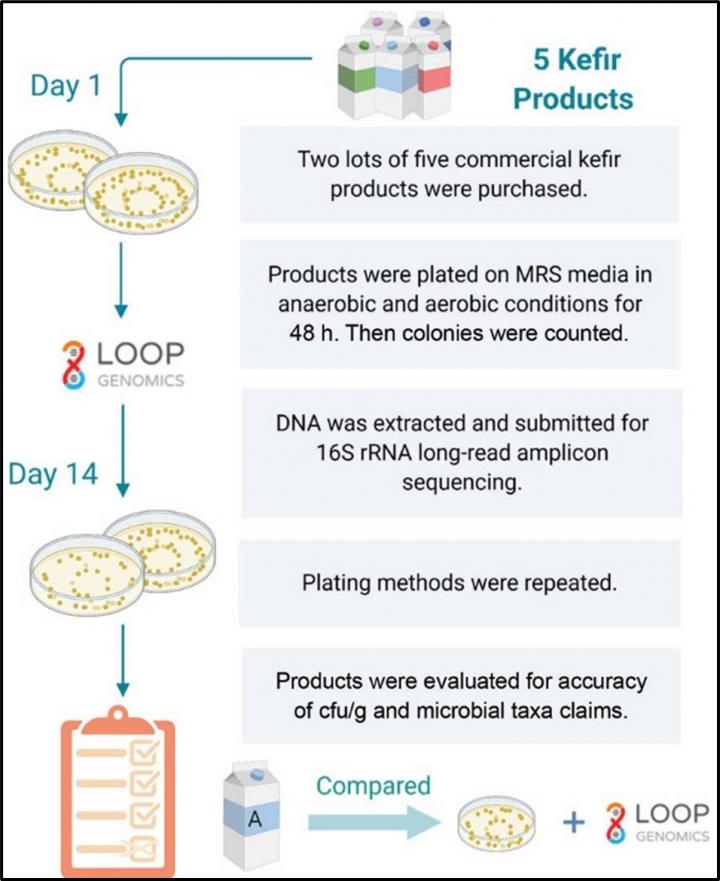Researchers reporting in JDS CommunicationsTM found overstated microorganism density and nonlabelled bacterial species, potentially misleading consumers

Credit: B.N. Metras, M.J. Holle, V.J. Parker, M.J. Miller, and K.S. Swanson
Philadelphia, May 12, 2021 – In recent years there has been an increased interest in the consumption of kefir, a fermented dairy beverage, because there is some evidence that it has health benefits and its affordability. A new study by researchers from the University of Illinois and The Ohio State University, published in JDS Communications, found that 66 percent of the commercial kefir products studied overstated microorganism density and 80 percent contained bacterial species that were not included on the label, potentially misleading consumers.
Senior author Kelly S. Swanson, PhD, University of Illinois, Urbana, IL, USA, believes better quality control of kefir products is required to demonstrate and understand their potential health benefits. “It is important for consumers to know the accurate contents of the fermented foods they consume,” Swanson said.
Swanson and his team of researchers bought five kefir products from online vendors and stores in the Urbana, IL area and analyzed two lots of each. Although all five guaranteed specific bacterial species used in fermentation, the team found that no product completely matched its label. All products contained Streptococcus salivarius, and four out of five products contained Lactobacillus paracasei, although they were not included on the labels.
According to Dr. Swanson, classification as a “cultured milk product” by the FDA requires disclosure of added microorganisms. “Regulatory agencies and consumers must continue to scrutinize these products and demand a higher level of accuracy and quality,” he explained.
The authors hope this and future studies will call attention to the effect of inaccurate kefir product labeling.
###
Media Contact
Eileen Leahy
[email protected]
Related Journal Article
http://dx.




